Introducing the Double Fold Waistband
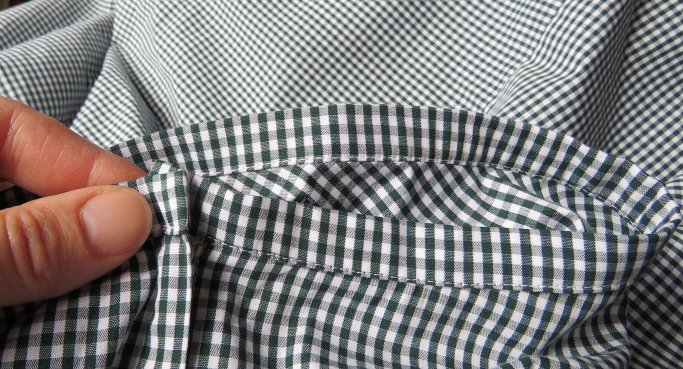
Hello sewing tech enthusiasts,
Introducing the double fold waistband, one of the sewing techniques I’m using in my next sewing book (does that make it sound dry and boring? I hope not!)
Undoubtedly this is no new idea; I make no bold claims to be the inventor. Although I’ve never seen this type of waistband in any sewing book (including my own) nor in any factory, it’s actually the same principle as double folded binding except that it’s cut on the straight grain rather than the bias. The same technique can also be used for cuffs.
As you know, interfacing is essentially just an extra layer of fabric. A double fold waistband uses its own fabric for the interfacing.
A double fold waistband is good if:
- the fabric is light to medium in weight—it doesn’t work for thick fabrics
- you’ve got enough fabric to do it (the waistband is cut wider than a regular one)
- you’ve got no interfacing
- the interfacing won’t fuse or you’re worried about how it will perform
I’ve found that a double fold waistband is a bit quicker to do than a regular one. It’s also very neat on the wrong side – both sides look the same as you can see in the heading picture.
To cut:
(Note: 1cm seam allowances)
- Cut a strip of fabric for the waistband. Width: four times the finished width plus two seam allowances. For example, cut it 14cm for a 3cm wide waistband, or 18cm for a 4cm wide one. The minimum cut size would be 8cm (for a 1.5cm wide band) and the maximum 22cm (for a 5cm wide band).
Iron the strip in half longways, wrong sides together.
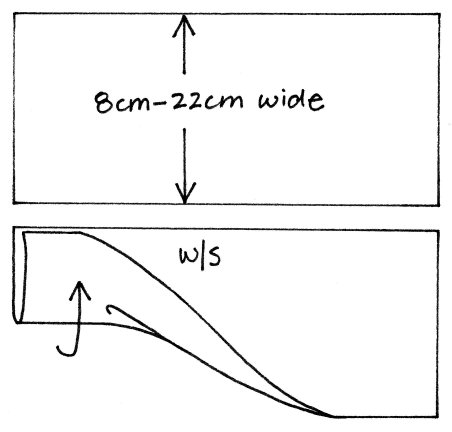
2. Notch the finished waistband length.
To find the finished length, you can:
(if you’re using a commercial pattern) just use the pattern’s waistband length
or
wrap it around your waist and mark the beginning and end (a good method if you wear your skirts/trousers below your actual waist)
or
take your waist measurement and add an amount of ease, anywhere from 1.2cm to 2.5cm depending on if you wear clothes tucked in or like your waistbands loose or tight. I like to have 1.5cm for skirts and 2.5cm for trouser waistbands.
Obviously the finished length needs to be the same as the garment’s waist.
Trim the ends of the waistband, leaving a 1cm seam allowance at one end and a 4cm extension at the other.
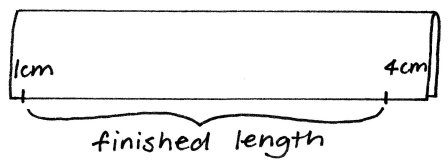
3. Quarter the waistband to find the centre front and sides.

To sew:
- Place the still-folded-in-half waistband onto the wrong side of the waist. Match all the notches, ensuring there’s the correct overhang at each end. Sew, with the waistband uppermost and the garment underneath. Press the seam up, towards the waistband.
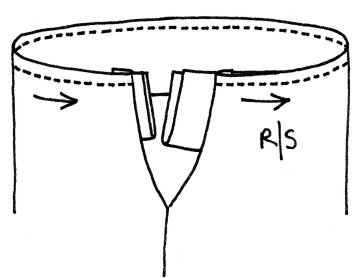
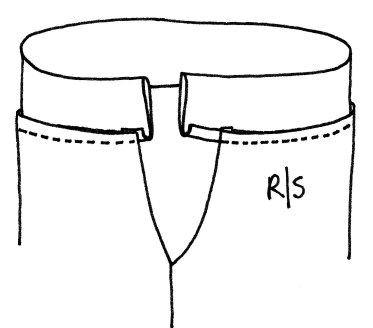
2. Finish the ends: fold the waistband back on itself and stitch the (left) end level with the garment. On the (right) end with the extension, take a 1cm seam. Trim the corners and turn through.
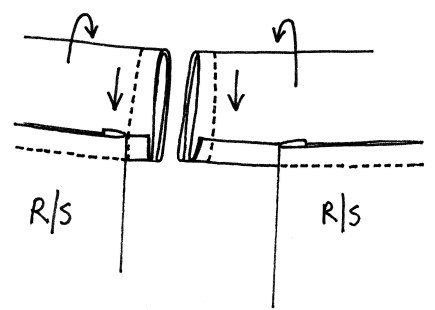
3. Bring the waistband over to the right side and edgestitch (along the fold) into position. Topstitch around the whole waistband to keep the inside layer in place when the garment is laundered.
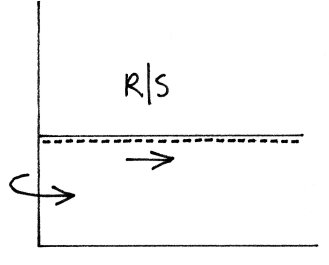
Give it a try for your next waistband!
Cheers!
Great explanation, Liz! I particularly like your clear diagrams. I’ll be using this next time… Thanks!
Cheers, Tania. Look forward to hearing about it.
Best introduction the double fold waistband.
Thank you! Give it a try!
It’s basically like doing binding for a quilt.
Yes, it’s exactly like doing a quilt binding! Except one doesn’t wear it around one’s waist 🙂
That looks great and good use of fabric when you have a strip left over trying to sew zero waste.
Groetjes, Ineke
Cheers Ineke 🙂 – it’s been pretty handy for zero waste.